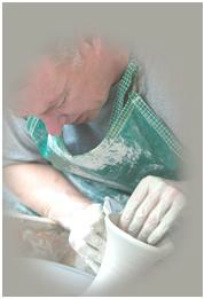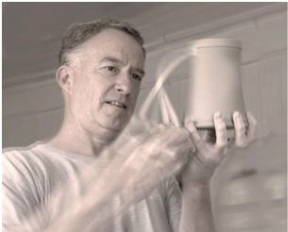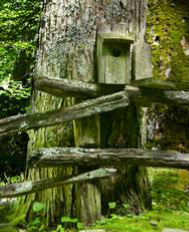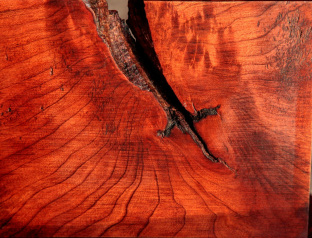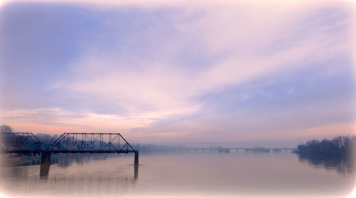This Quiet Day provides a reflection on the Spirituality of Imperfection, the spirituality of the second half of life. There are spacious times for quiet reflection, journaling, exploring nature, silence, and quiet conversation with one or two others after each of three Cycles. There will be no large group discussions. A short time at the end provides for reflection on the day. Some will prefer to offer their silent witness.
In the first half of life we are establishing our careers, our households, and our personas with perfection. Success and building our reputation are our priorities.
In the second half of life our striving for perfection has lost its appeal. The masks we have created are coming loose. We are learning more from our disappointments, losses, and failures than from our successes. We begin the inward journey, each in our own unique way.
There is wisdom embedded within our imperfections. Our flaws lead us to our Center, our Essence, where a Great Mystery has been waiting our arrival.
In the first half of life we are establishing our careers, our households, and our personas with perfection. Success and building our reputation are our priorities.
In the second half of life our striving for perfection has lost its appeal. The masks we have created are coming loose. We are learning more from our disappointments, losses, and failures than from our successes. We begin the inward journey, each in our own unique way.
There is wisdom embedded within our imperfections. Our flaws lead us to our Center, our Essence, where a Great Mystery has been waiting our arrival.
|
In the first cycle of the day we will take our cues from the thoughts of several unusual potters, who dare to write that they do not try to create “perfect” pots, but to follow the natural desire of the clay. After several rich reflections by selected British potters, each participant will choose a pot they are drawn to hold for a spacious time of solitude and meditation. Svend Bayer, “If you look for perfection in my pots you will not find it. Look at them as you would on survivors, or maybe your oldest and dearest friends. Like them my pots have scars and blemishes, the signs of a life lived. Every time you look closely at them, they will tell you something new.”) ... a spacious time apart...
|
|
David Whyte’s “The Faces of Braga”—( If only we knew as the carver knew, how the flaws in the wood led his searching chisel to the very core, we would smile, too and not need faces immobilized by fear and the weight of things undone.”)
Several beautiful, imperfect pieces of black walnut and cherry will be available for participants to hold in a spacious time for reflection, walking, looking, and sitting. ... a generous time apart. |
|
In the Third Cycle we will hear Ted Kempel’s, The Gift of Being Unfinished (…”Thank you for unfinishing us, offering us the possibilities of being undone, allowing us to willingly surrender the imperfect gifts of our lives.”) After a gathered time of silence, some may wish to reflect on the day. Others may offer their silent presence as their gift. |
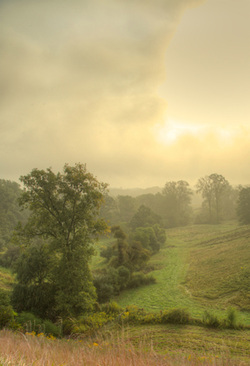
2. The Blessings of Maturity
1. “The Blessings of Maturity” is a remarkable essay by Elton Trueblood, a Quaker who taught at Earlham College and Haverford. A presentation summary will be offered of Elton Trueblood’s essay with quieting music and photographs from nature. This gives the larger picture of the blessings and freedoms of maturity.
2. We will consider a summary sheet of the reflections and thoughts to chew on, which Elton Trueblood raises in his essay.
3. Three themes will follow:
a. Gathering and ordering our memories; how might we go about doing this in a thoughtful, affirming way?
b. Hope: now as we move closer to our end, hope for us dramatically changes in what it means. A second brief presentation with music, nature photography, and the reflections Wendell Berry, gives us a different perspective on hope.
c. Rituals that no longer work for us; a few examples of religious rituals that can lose their meaning.
4. The “Gift of Being Unfinished,” is a third presentation written by Ted Kempel with quiet music and nature photography.
5. Concluding thoughts by the group of what they are experiencing. Anyone may pass.
1. “The Blessings of Maturity” is a remarkable essay by Elton Trueblood, a Quaker who taught at Earlham College and Haverford. A presentation summary will be offered of Elton Trueblood’s essay with quieting music and photographs from nature. This gives the larger picture of the blessings and freedoms of maturity.
2. We will consider a summary sheet of the reflections and thoughts to chew on, which Elton Trueblood raises in his essay.
3. Three themes will follow:
a. Gathering and ordering our memories; how might we go about doing this in a thoughtful, affirming way?
b. Hope: now as we move closer to our end, hope for us dramatically changes in what it means. A second brief presentation with music, nature photography, and the reflections Wendell Berry, gives us a different perspective on hope.
c. Rituals that no longer work for us; a few examples of religious rituals that can lose their meaning.
4. The “Gift of Being Unfinished,” is a third presentation written by Ted Kempel with quiet music and nature photography.
5. Concluding thoughts by the group of what they are experiencing. Anyone may pass.
- The Path of this Day Apart
In this Day Apart we will signal a gentle truce with ourselves, so we may be ready for what comes to us about revising our lives, allowing our lives to unfold as the good poems they are already.
Through the poetry of William Stafford, lovely images of the rhythms of nature, the lyrical songs of streams, frogs, birds, and whales, with meandering walks, and stillness, we will practice listening and looking for the poems and gifts that are unfolding within us.
“I think you create a good poem by revising your life… by living the kind of life that enables good poems to come about.” W.S.
“If you are writing and you get stuck, lower your standards and keep going. And my standards can get really low…” “When you are writing and it gets hard, don’t stop. It’s hard because you are doing something original.” William Stafford, Dad
“To lower one’s standard comes from medieval warfare. It was a signal for a truce. To raise your standard meant to attack. To declare a truce as a writer is to be utterly ready for what comes.” Kim Stafford, Son
- From the Arti Gras! Evaluations:
“Wonderful blending of imagery, words,
and sounds, an oasis for reflection. “John’s ,
inviting, facilitator/presenter. We received
glowing praise for your workshop at Art
Gras! from Amanda Cushing, Director of
Arti Gras! February 13, 2010, the
Spirituality Network, Columbus.
The Day's Schedule
9:00 Session 1. Welcome/Introductions
What brings us here? An opening of brief sharing by participants,
“My Life in Writing” reflection and Power Point by JH
10:15 Silent time to rest, to walk, to sit with one of nature’s icons and acconpanying poem by William Stafford.
10:45 Session 2. “The Contrary Way William Stafford Invited Young Writers Forward”
11:30 Silent time to rest, to reflect with one of nature’s icons and accompanying poemsby William Stafford, and/or to walk slowly as “walking meditation.”
12:00 Lunch, and after lunch in the sleepy time that follows…
12:30 “Wake Up!” with the Canadian Brass playing music for the royal Fireworks, plus the G rated humor of Librarians & Photographers!
12:35 Session 3. Williams Stafford’s early formation from his Quaker mother, then In the work camps for Conscientious Objectors during the Second World War.
1:15 break, some quiet time.
1:30 Session 4. Conversation together, sharing our half-baked ideas maybe a hunch or two of the way forward, what we’ve begun to consider, or remaining silent if that is the better way.
2:00 Shalom
For: Persons with too much to do and too little time for reflection on what is most important in God’s universe. No need to expect a miracle. Faith is always enough.
What to bring:
Dress casually and bring walking shoes.
A willingness to be still and experience the peace within.
To express interest in this Day Apart, email johnholliger@columbus.rr.com
In this Day Apart we will signal a gentle truce with ourselves, so we may be ready for what comes to us about revising our lives, allowing our lives to unfold as the good poems they are already.
Through the poetry of William Stafford, lovely images of the rhythms of nature, the lyrical songs of streams, frogs, birds, and whales, with meandering walks, and stillness, we will practice listening and looking for the poems and gifts that are unfolding within us.
“I think you create a good poem by revising your life… by living the kind of life that enables good poems to come about.” W.S.
“If you are writing and you get stuck, lower your standards and keep going. And my standards can get really low…” “When you are writing and it gets hard, don’t stop. It’s hard because you are doing something original.” William Stafford, Dad
“To lower one’s standard comes from medieval warfare. It was a signal for a truce. To raise your standard meant to attack. To declare a truce as a writer is to be utterly ready for what comes.” Kim Stafford, Son- From the Arti Gras! Evaluations:
“Wonderful blending of imagery, words,
and sounds, an oasis for reflection. “John’s ,
inviting, facilitator/presenter. We received
glowing praise for your workshop at Art
Gras! from Amanda Cushing, Director of
Arti Gras! February 13, 2010, the
Spirituality Network, Columbus.
The Day's Schedule
9:00 Session 1. Welcome/Introductions
What brings us here? An opening of brief sharing by participants,
“My Life in Writing” reflection and Power Point by JH
10:15 Silent time to rest, to walk, to sit with one of nature’s icons and acconpanying poem by William Stafford.
10:45 Session 2. “The Contrary Way William Stafford Invited Young Writers Forward”
11:30 Silent time to rest, to reflect with one of nature’s icons and accompanying poemsby William Stafford, and/or to walk slowly as “walking meditation.”
12:00 Lunch, and after lunch in the sleepy time that follows…
12:30 “Wake Up!” with the Canadian Brass playing music for the royal Fireworks, plus the G rated humor of Librarians & Photographers!
12:35 Session 3. Williams Stafford’s early formation from his Quaker mother, then In the work camps for Conscientious Objectors during the Second World War.
1:15 break, some quiet time.
1:30 Session 4. Conversation together, sharing our half-baked ideas maybe a hunch or two of the way forward, what we’ve begun to consider, or remaining silent if that is the better way.
2:00 Shalom
For: Persons with too much to do and too little time for reflection on what is most important in God’s universe. No need to expect a miracle. Faith is always enough.
What to bring:
Dress casually and bring walking shoes.
A willingness to be still and experience the peace within.
To express interest in this Day Apart, email johnholliger@columbus.rr.com
